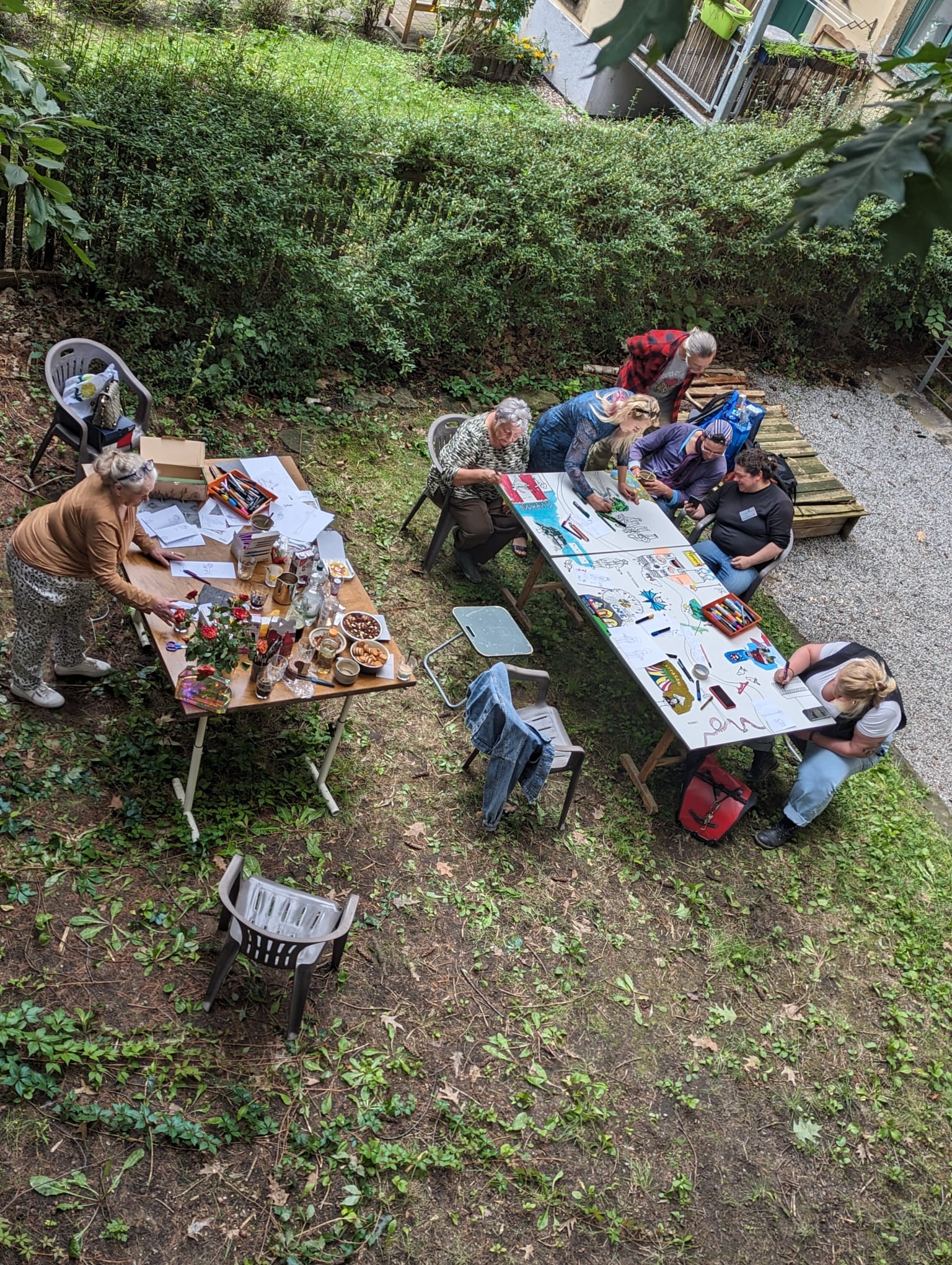
An experience in felt-tip pen territory: three Kapa plates and a hidden object picture are created on a September afternoon in a Neustadt backyard.

For more than a year, various events have been taking place in the Galerie nEUROPA under the motto Open Gallery - self-organised by Ukrainian women and other committed people.
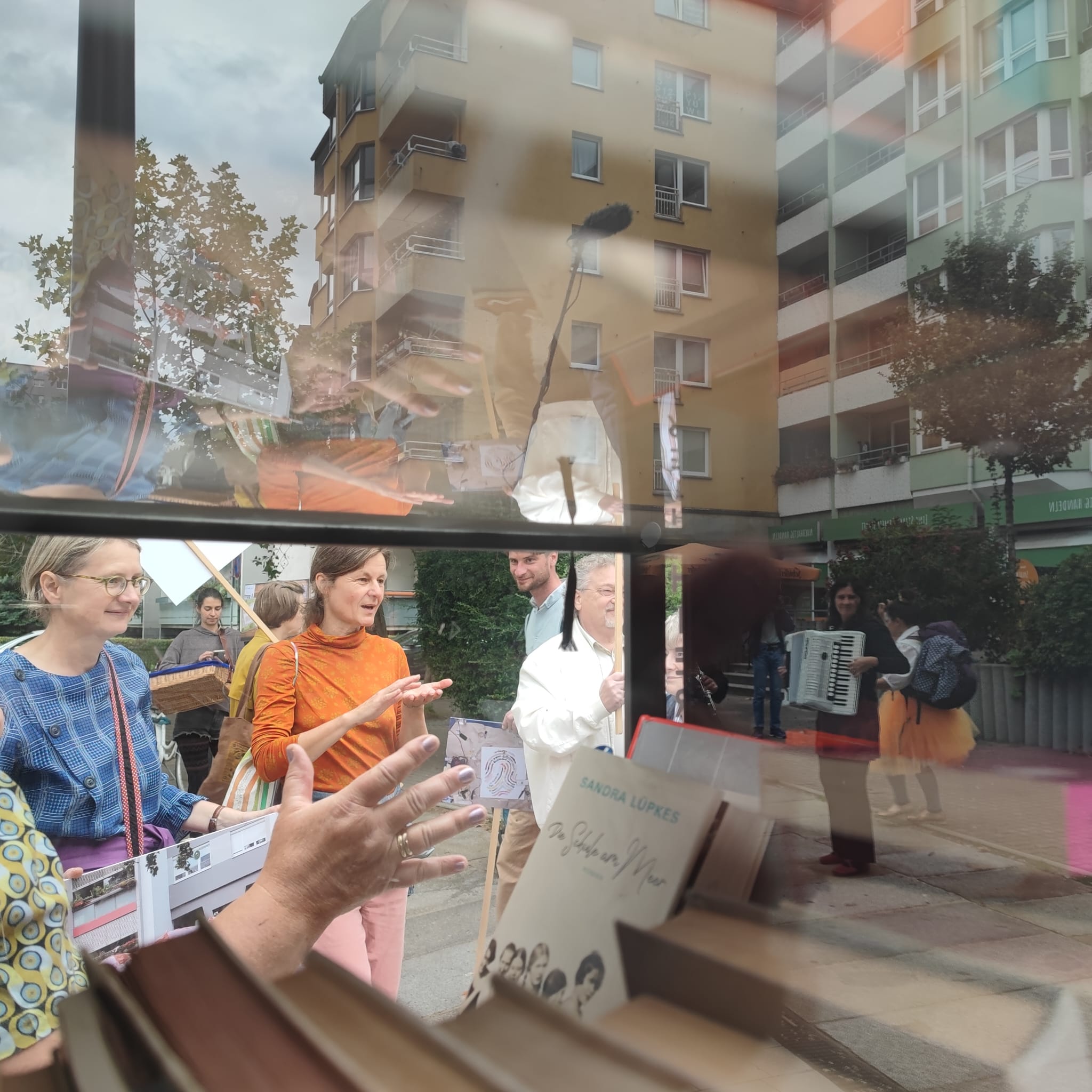
text: Rosa Hauch · photos: Rosa Hauch Plattenwechsel is the name of the Johannstadt project. It’s called that. The past tense is almost out of the question, because everything that…
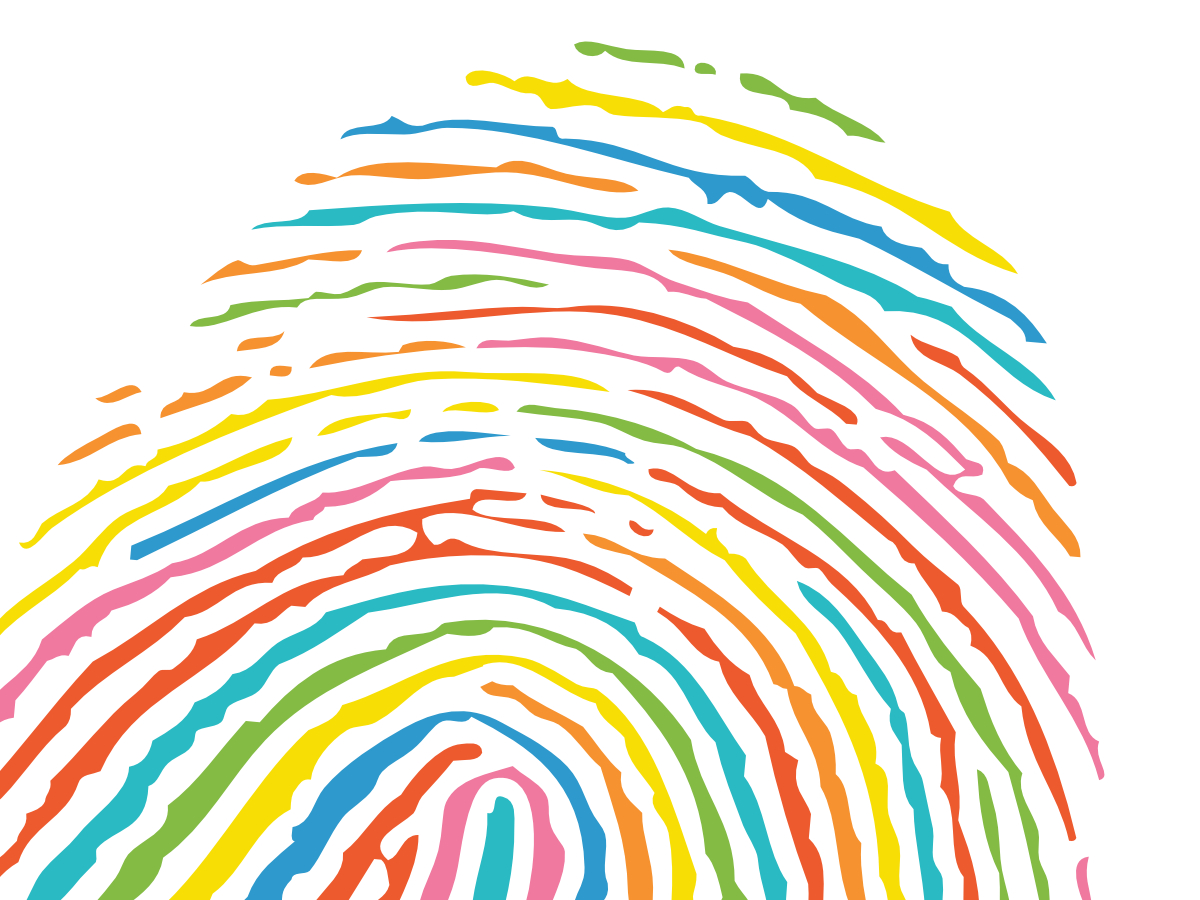
The 33rd Intercultural Days will take place in Dresden from 17 September to 8 October. The motto of this year's series of events is "What unites us" / "Was uns verbindet" and thus puts the commonalities of all Dresdeners in the foreground.
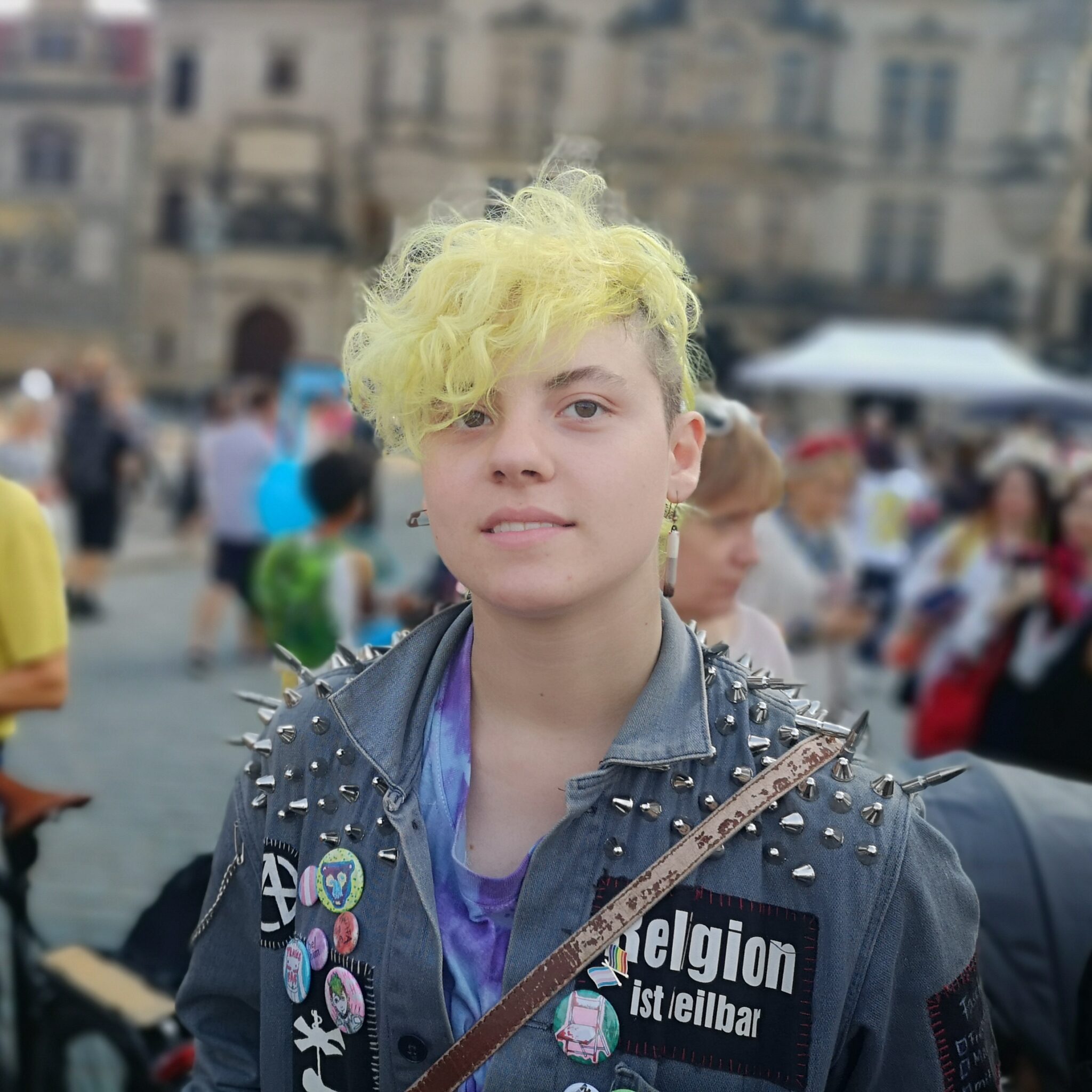
I am John, 19 years old and have now completed a year of federal voluntary service with Kultur Aktiv. After graduating from the Fachoberschule für Gestaltung, I decided to look…

Today we would like to let Yuliya Firsova tell a story that began last year here in Dresden: A year ago, the Open Gallery in the Galerie nEUROPA and a sewing café started with the motto "Shaping the future together with patchwork". The idea came to Ukrainian women whose lives were suddenly interrupted and torn apart by the war.
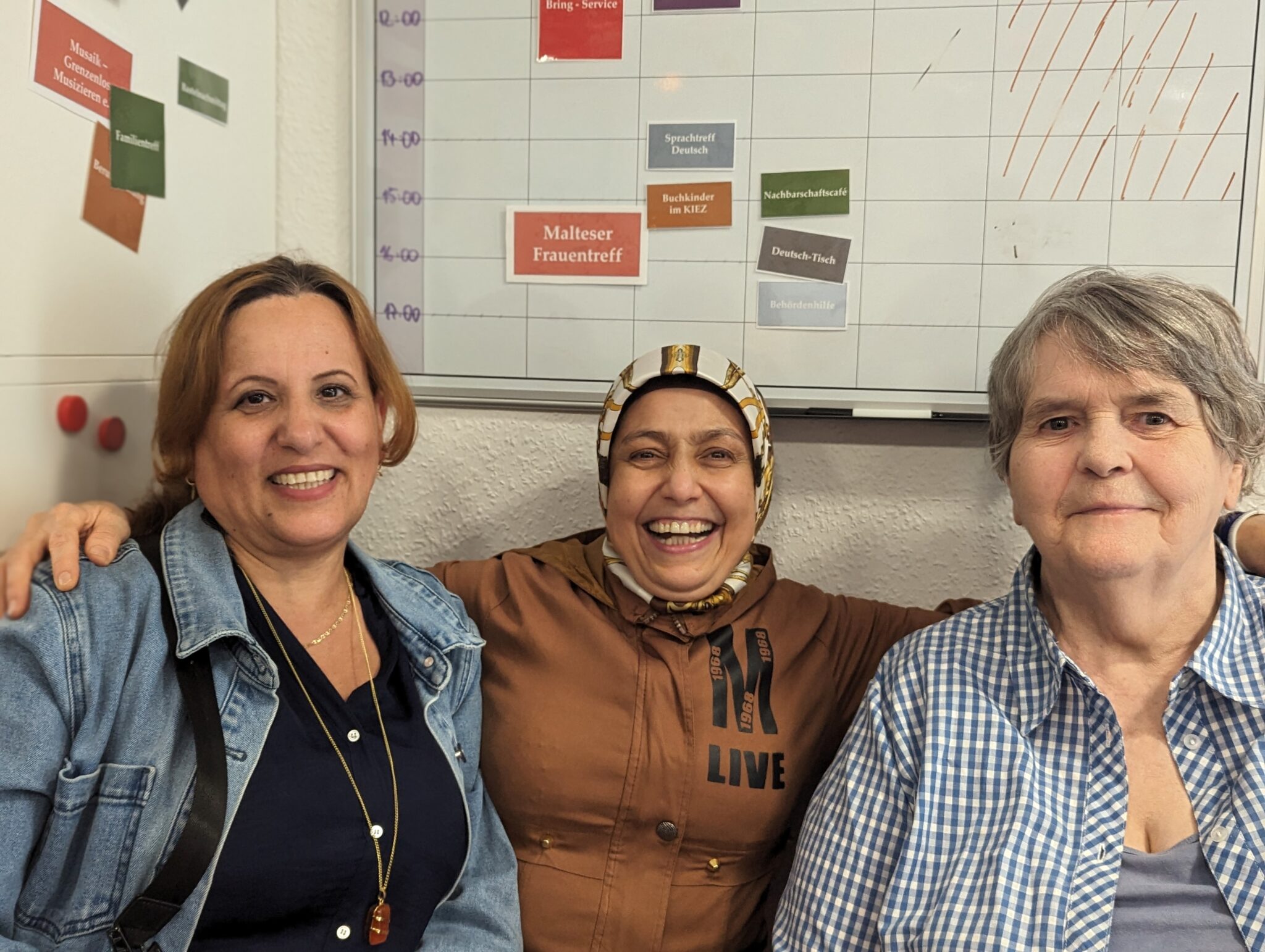
Monika is no longer good on her feet, but Amal and Mona are. The two women support the mobile shopping cart for elderly and disabled people every week. It makes its weekly tours in Prohlis and Pieschen. Mona comes from Syria and Amal from Lebanon. The two women have been looking for and found a task so they can meet people and improve their German. "After shopping, we always sit with the elderly people for coffee. It's always very nice. It has taken away our fear of making mistakes when speaking." Amal says she has finally been granted residency and can now finally work properly. "Life in Germany is very respectful and I feel safe, but the nice things in life were in Lebanon."
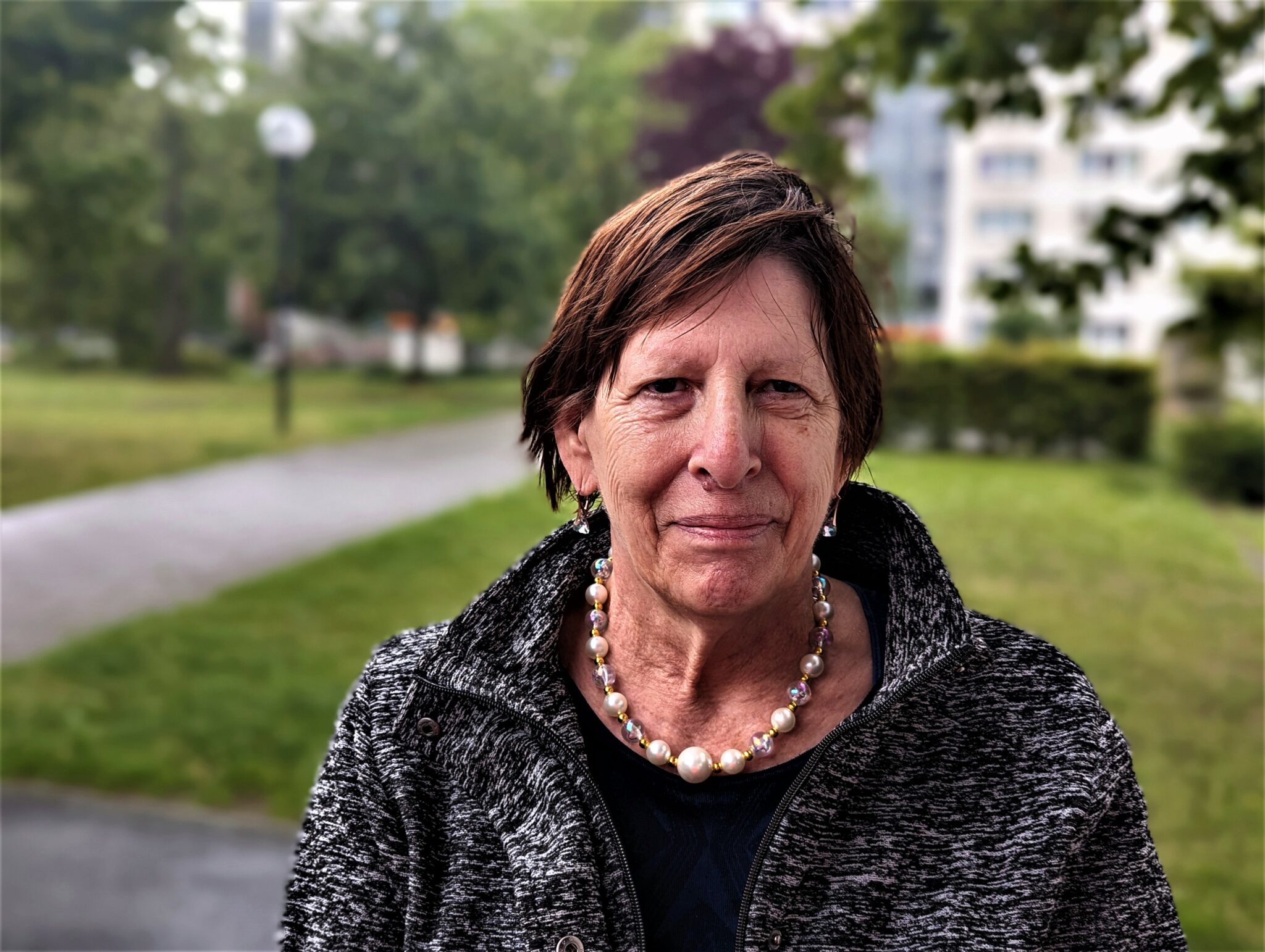
"I wanted to help and I still want to." Every Wednesday you can meet Maria at the women's meeting place. When her husband was still mobile, he accompanied her and gave chess classes for the newly moved Prohlis residents. "The biggest help is when you listen to people and do something together with them. That's why we create jewellery every fortnight, it's international and all the women understand something about it."
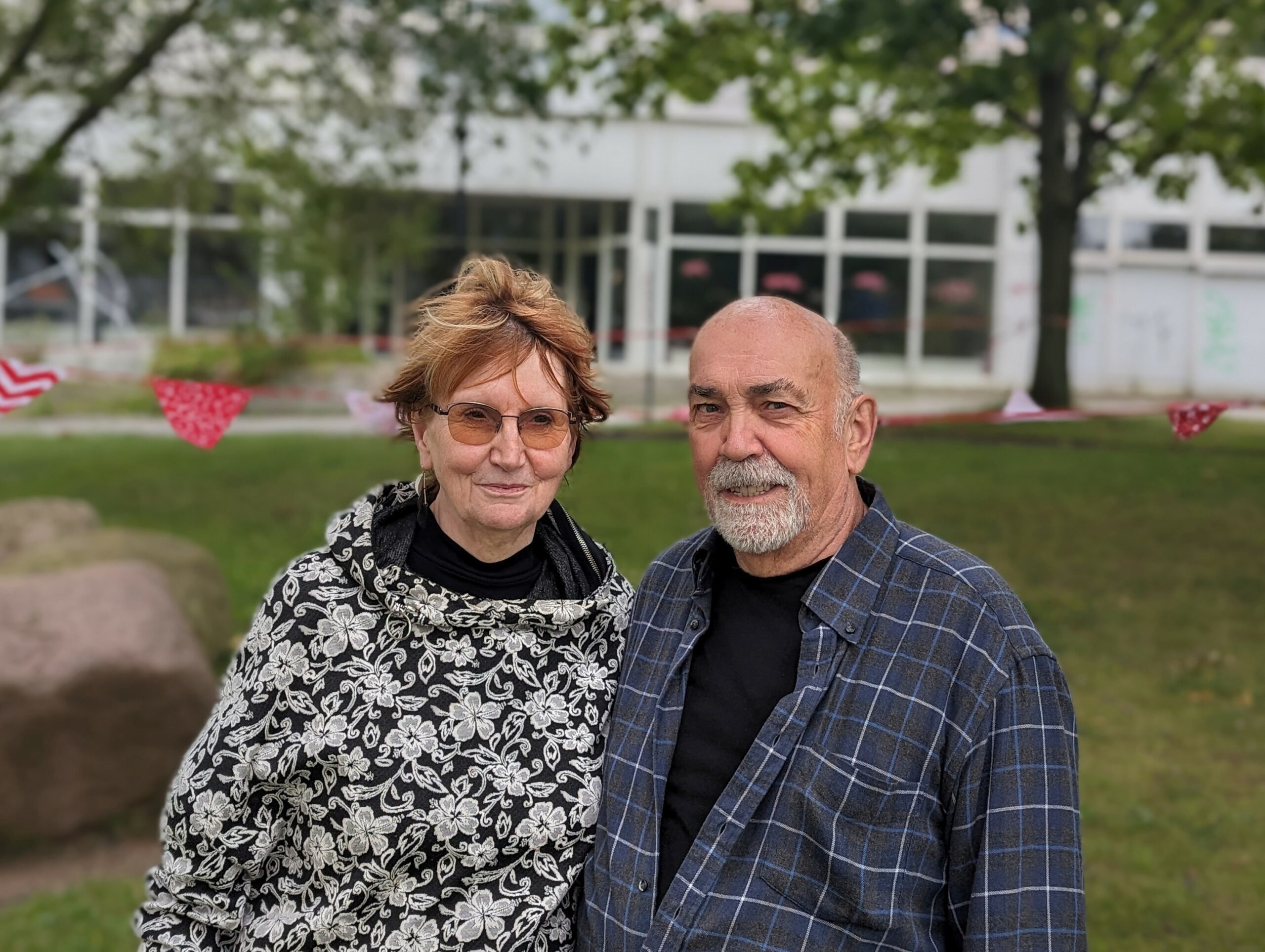
Maria has worked as a teacher all her life. She had read a newspaper article saying that caregivers were needed for underage refugees, and it was immediately clear to her that this would be her job. "What a great luck to have met so many people. Every new acquaintance is a journey to another country. This work keeps us young." Since then, she and her husband Jürgen have accompanied the weekly language meeting at Treffpunkt Prohlis and are happy for any support.
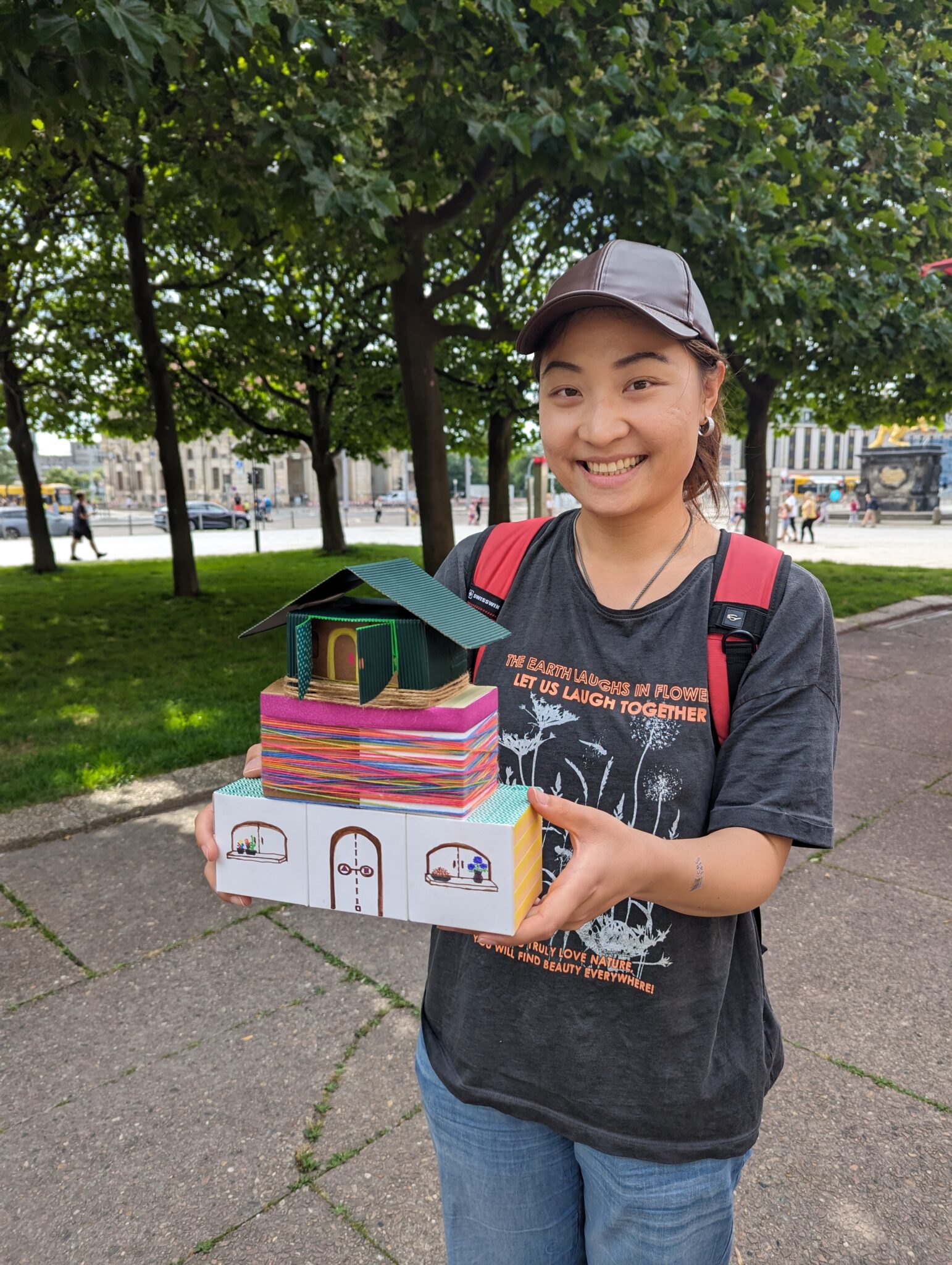
… from China actually wanted to build the imperial palace. But this particular red is not there. So her house will be even more magnificent than the palace, because it has a balcony. She usually only knows these many balconies with flowers in Germany from the villas of rich people.
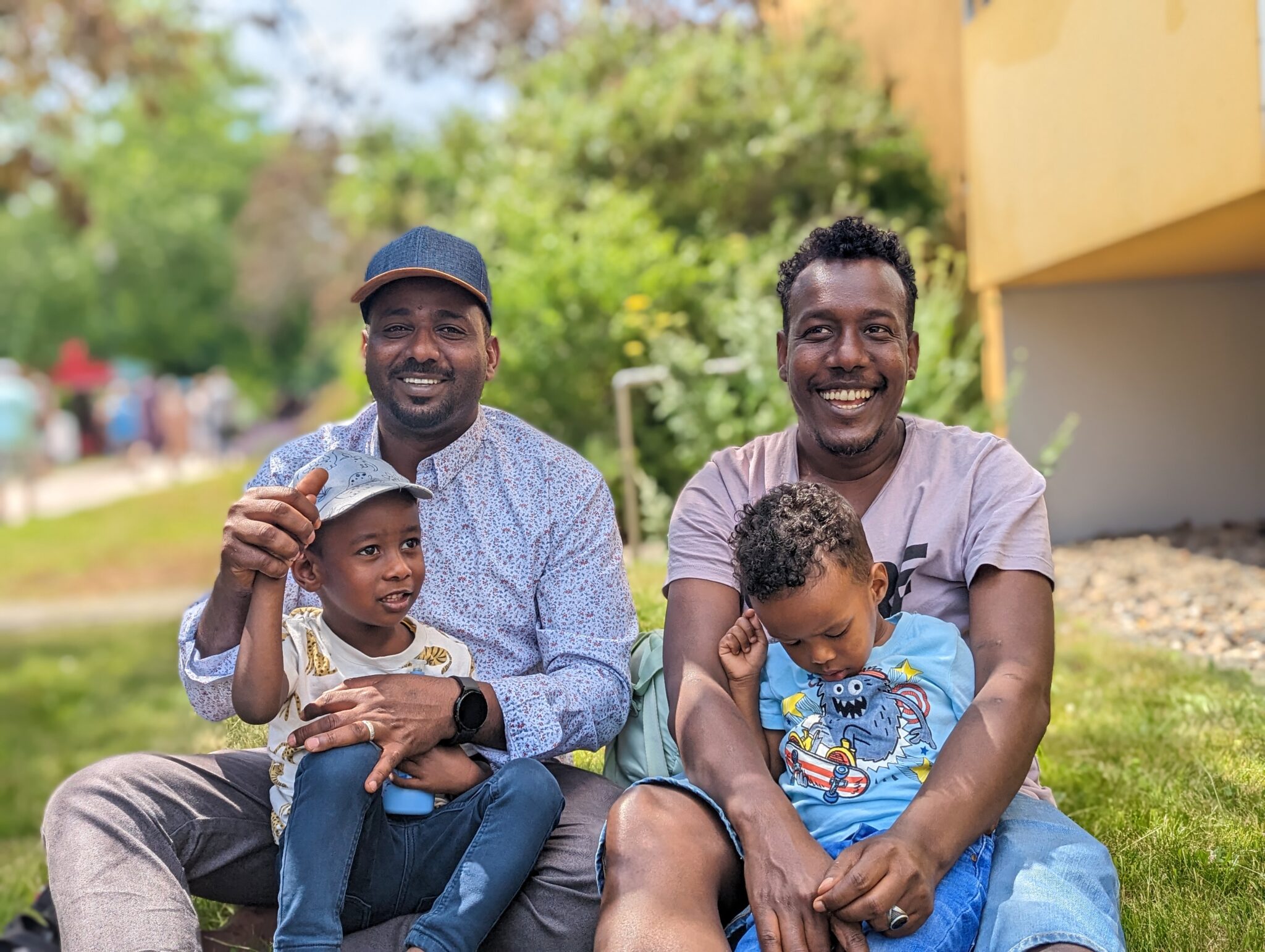
In the shade, under the only tree, on this hot day at the Westhangfest, we met Mohammad and Momhammadker with their families. Both came from Sudan eight years ago as refugees, but only got to know each other in Dresden. They are working, have mastered the German language, and their children will soon be going to kindergarten. And yet they feel like strangers here. There is no contact with the neighbours. They wish it were different, but there is a lack of contact. "We often feel excluded, the racism is palpable. When we say hello, usually nothing comes back. Most of the time we are just among ourselves, unfortunately."
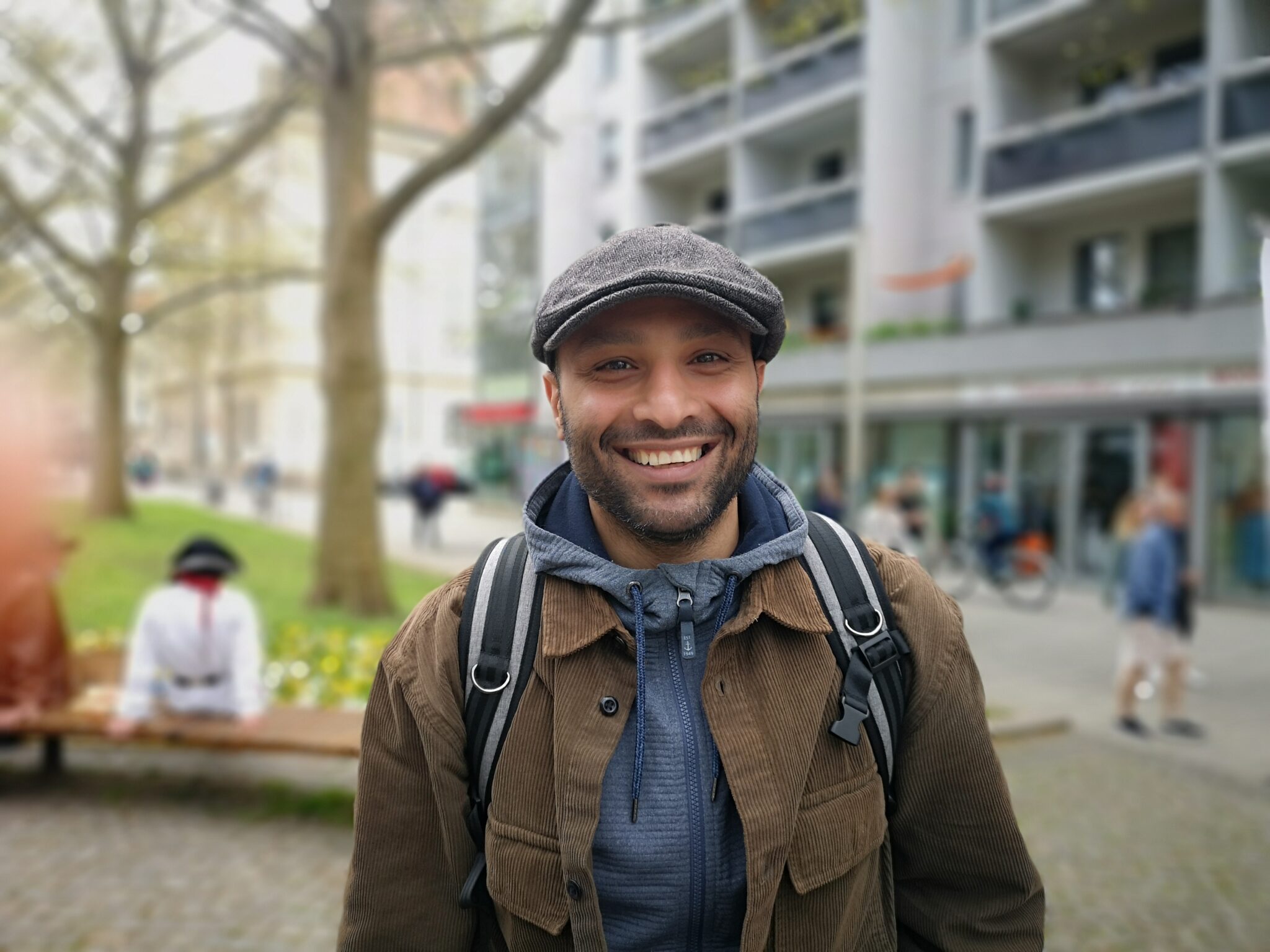
... has lived in Dresden since 2015. He works as a welder. Actually, he is a sculptor and he really likes the old Dresden. "The city is beautiful, but modern art is missing. Just as old things are treated with respect here, people should treat each other the same way."












